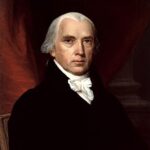James Madison shocked political observers in 1816 by supporting the Second Bank of the United States. The Constitution’s primary architect had spent decades opposing Alexander Hamilton’s original national bank. His Madison National Bank reversal marked one of the most dramatic philosophical shifts in early American politics.
The Original Opposition
Madison had argued in 1791 that Congress lacked constitutional authority to charter a national bank. He championed strict constitutional interpretation against Hamilton’s broad construction theories. The Virginia politician believed federal power should remain limited to explicitly enumerated constitutional provisions. His opposition helped establish the Democratic-Republican Party’s core philosophy.
The War’s Financial Lessons
The War of 1812 devastated America’s financial system without a central banking institution 💰. State banks issued unreliable currency that complicated federal financing. Military expenses exposed the government’s inability to manage complex wartime economics. Madison witnessed firsthand how financial chaos weakened national defense capabilities.
The Controversial Reversal
Madison signed the Second Bank charter in April 1816 despite his previous constitutional objections. Critics accused him of abandoning principled leadership for political convenience ⚠️. Federalist opponents labeled him a hypocrite who flip-flopped on fundamental constitutional questions. Even some Democratic-Republicans questioned their leader’s dramatic ideological transformation. The Madison National Bank decision forever changed perceptions of constitutional flexibility versus rigid interpretation 📊.
Impact:
Madison’s constitutional reversal created lasting consequences for American political thought and presidential authority. His flip-flop undermined strict constructionist arguments and expanded federal power precedents.
Constitutional Interpretation Revolution
The Madison National Bank decision weakened arguments for rigid constitutional interpretation 🔥. Future presidents cited Madison’s reversal to justify expanded federal authority. Supreme Court cases referenced his philosophical shift to support broad construction theories. Constitutional scholars debated whether practical necessity could override theoretical principles.
Political Credibility Crisis
Madison’s reversal damaged his reputation as America’s premier constitutional theorist. Opponents questioned his intellectual consistency and principled leadership. The flip-flop provided ammunition for critics who accused Democratic-Republicans of hypocrisy. Political allies struggled to defend their leader’s dramatic philosophical transformation.
Economic and Financial Impact
The Second Bank stabilized American currency and improved federal financial management 💰. Regional banks gained stronger regulatory oversight and standardized practices. International creditors viewed America as more financially responsible and stable. However, the bank also concentrated economic power in ways that concerned agrarian interests.
Long-term Presidential Precedent
Madison’s reversal established precedent for presidential pragmatism over ideological purity 📉. Future leaders cited his example when abandoning campaign promises or previous positions. The decision normalized constitutional reinterpretation based on changing national circumstances. Presidential flexibility became more accepted than rigid adherence to past statements. This controversial decision fundamentally altered American political culture and constitutional understanding.
